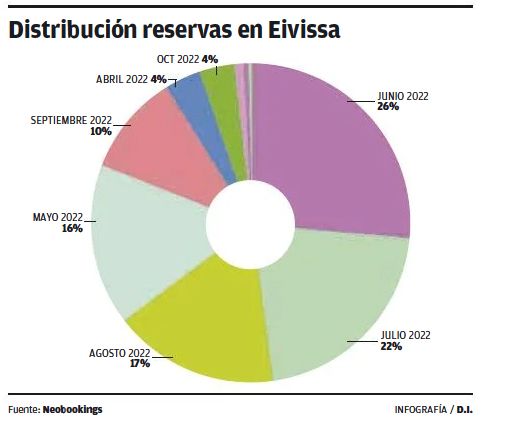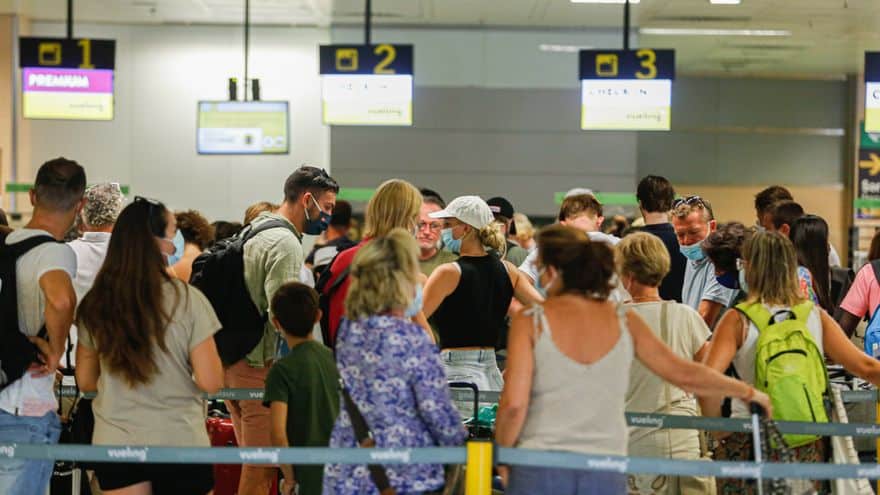Last Monday, January 3, right after the New Year’s hangover, hotel reservations in Ibiza for the upcoming season began to “skyrocket.” Despite the fact that there had never been so many cases of infection during the pandemic all over the world (let alone Ibiza), there was an unusual boost in bookings for the next vacations on that date, according to José Mara Ramón, CEO of Neobookings, a booking engine that works with more than 60% of the Pitiusas: “Since that day, we have observed in the graphs a take-off of British bookings, as well as those of Spaniards. The tourists from the United Kingdom, on the other hand, are in the lead.”
After Premier Boris Johnson lifted the anti-virus travel regulations established a month and a half ago and which, considering the enormity of the contagions (for weeks now between 100,000 and 300,000 per day), have not yielded the desired results, the British began to book as if there was no tomorrow. Vaccinated visitors are no longer required to do an antigen test before traveling to the United Kingdom, nor are they forced to perform a PCR test two days after arrival, nor are they confined until the results are available. As a result, companies like Jet2 saw a 150% boost in bookings to Spain overnight.
Since then, reservations in Ibiza have reached all-time highs: “The trend is upward.” “We are creating at a faster rate than we did in the same period in 2021,” Ramón affirms. “People are still eager to travel, and as the pandemic develops and hospitalization rates fall, the British are resuming their vacation habits.”

The graphs show that 21% of sales originate from the United Kingdom, to which practically all of the 27% belonging to a slice of the pie of that figure known as “empty,” which includes passengers whose nationality is disguised but who are primarily British, must be added. Spaniards make up 14% of the population, followed by the Dutch (8%), Italians (7%), Germans (5%), French (4%), and Belgians (3%).
The month of June has the highest concentration of bookings (26 percent), followed by July (22 percent ). They account for nearly half (48 percent) of all stays between the two months, with 17 percent from August, 16 percent from May, and 10 percent from September.
Less than in 2021 at the last minute in Ibiza
However, Neobookings’ CEO recalls that in 2021, “the amount of bookings that was then came to nothing.” Everyone who made a reservation and then cancelled. Almost every one of them. As a result, perhaps we should consider what is left of all of this rather than what is there now. “What is important,” Ramón emphasizes, “is that there is a willingness to attend and that the curves are better than in 2021.” Ibiza remains a popular tourist destination.”
For the full article, please visit Diario de Ibiza website here.

